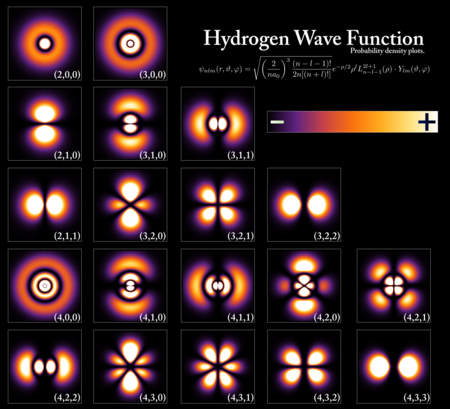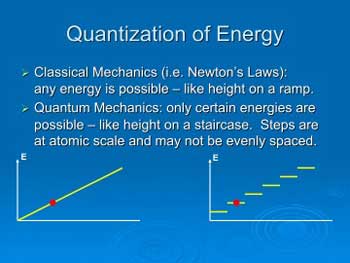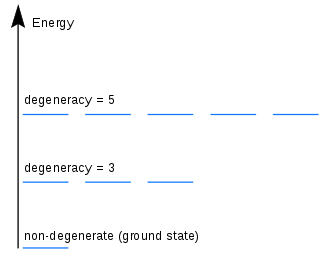Quantum mechanics is a branch of physics that deals with the behavior of matter and energy at a microscopic level. It is a fascinating field that has revolutionized our understanding of the universe. One of the key concepts in quantum mechanics is that of a state. But what is a state in quantum mechanics, and why is it so important?
In simple terms, a state in quantum mechanics is a mathematical description of a physical system. This description includes information about the energy, momentum, position, and other properties of the system. But unlike classical mechanics, where the state of a system is well-defined and deterministic, the state of a quantum system is probabilistic. This means that the state of a quantum system does not give us a definitive answer about the properties of the system, but rather a range of possible outcomes with different probabilities. Understanding the concept of a state is essential to understanding the behavior of quantum systems and the strange and fascinating phenomena that arise in this field.
In quantum mechanics, a state is a mathematical object that encodes the properties of a physical system. It can be thought of as a representation of all of the properties of an object such as its position, momentum, spin, and energy. States are represented mathematically as vectors, which can be used to predict the behavior of a system. States can also be used to describe the probability of a system being in a particular state or configuration.
What is a State in Quantum Mechanics?
The state of a quantum mechanical system is the mathematical description of its behavior. It is the collection of all the information that can be known about the system. It describes the physical properties of the system, such as its position, momentum, energy, spin, and angular momentum. It also describes the possible outcomes of measurements taken on the system.
Types of States
A quantum system can be in one of two states: a pure state or a mixed state. A pure state is a quantum state that is not mixed with any other state. It is a single point in the probability space that describes the system’s behavior. For example, an electron in a box is in a pure state, as it is not mixed with any other state. A mixed state, on the other hand, is a combination of two or more pure states. It is a point in the probability space that describes the probability of the system being in one of several possible states.
Quantum Wave Function
The quantum wave function is a mathematical description of the state of a quantum system. It is a function of the position and momentum of the system. It describes the probability of the system being in a particular state at any given time. The wave function can be used to calculate the expected outcome of a measurement taken on the system. It is also used to calculate the probability of the system transitioning from one state to another.
Quantum Entanglement
Quantum entanglement is a phenomenon in which two particles become inextricably linked, even if separated by great distances. If a measurement is taken on one of the particles, the measurement result will be instantly known for the other particle. This phenomenon is at the heart of quantum computing, and is one of the most mysterious aspects of quantum mechanics.
Uncertainty Principle
The uncertainty principle states that it is impossible to know both the position and momentum of a particle simultaneously. This principle is a consequence of the wave-like nature of quantum particles. It is an expression of the fact that the more precisely one tries to measure a particle’s position, the less precisely one can measure its momentum, and vice versa.
Quantum Superposition
Quantum superposition is the phenomenon in which a quantum system can exist in multiple states at the same time. This is a consequence of the wave-like nature of particles, and can only be observed at the quantum level. It is the basis of quantum computing, and is responsible for the power of quantum computers.
Quantum Tunneling
Quantum tunneling is the phenomenon in which a particle can pass through a barrier that it would normally not be able to pass through. This is a consequence of the wave-like nature of particles, and is used in many quantum computing algorithms. It is also responsible for many of the strange and counter-intuitive effects that can be seen at the quantum level.
Quantum Computing
Quantum computing is the use of quantum mechanics to perform computations. It is based on the principles of quantum superposition, entanglement, and tunneling. Quantum computers are incredibly powerful, and can solve certain problems much faster than classical computers. They are used in many fields, including cryptography and machine learning.
Frequently Asked Questions
In quantum mechanics, a quantum state describes the behavior of a particle or system at a given time. It is a mathematical representation of the possible configurations of a system and is used to describe the probability of a particle or system being in a particular state.
What is a state in quantum mechanics?
A quantum state is a mathematical representation of the possible configurations of a system. It is used to describe the probability of a particle or system being in a particular state. In quantum mechanics, the state of a system is described by the wavefunction, which is a mathematical expression that describes the probability of finding a particle in a particular state. The wavefunction is determined by the system’s energy levels, which are determined by the system’s Hamiltonian.
The Hamiltonian is a mathematical expression that describes the interactions between the particles in the system and their environment. The Hamiltonian contains information about the system’s energy levels, which determine the probabilities of the particles being in a particular state. The wavefunction is used to calculate the probability of a particle being in a particular state.

Quantum Superposition, Explained Without Woo Woo
In conclusion, the concept of a state in quantum mechanics is a fundamental aspect of understanding the behavior of subatomic particles. It represents the possible outcomes of a measurement, and its evolution over time is governed by the Schrödinger equation. The complexity and counter-intuitive nature of quantum mechanics have challenged our understanding of the physical world, but they have also opened up new possibilities for technological advancements, such as quantum computing and cryptography.
In summary, the state of a quantum system is a crucial component of the theory, and its study has led to groundbreaking discoveries in physics. As we continue to explore the mysteries of the quantum world, we can expect to gain a deeper understanding of the fundamental laws that govern our universe. The study of quantum mechanics is not only fascinating, but it also has practical applications that could revolutionize the way we approach computing, communication, and energy production.



